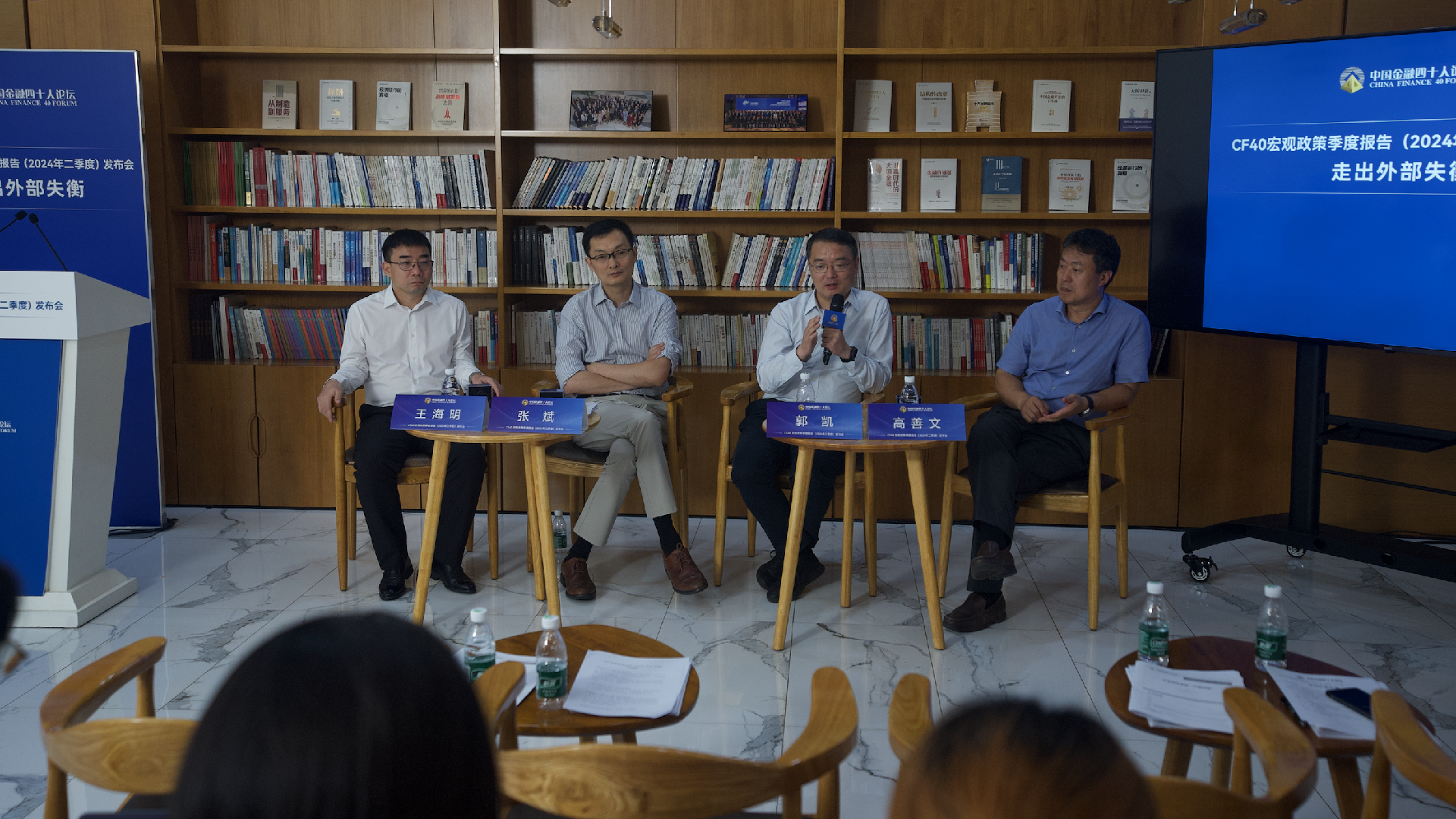CF40 Emphasizes China's Economic Strengths Despite Challenges
CF40 underscores the strengths of China's economy despite facing various challenges.

CF40's macro policy report for Q2 2024 emphasized that while the manufacturing industry is experiencing global recovery, there are still inflationary pressures.
The report highlighted that China's import and export scale and trade surplus attained historic highs in the first half of this year. Specifically, the cumulative year-on-year growth of China's exports in the first half of the year was 3.6 percent, marking a 7.1 percentage point increase compared to the same period last year.
The think tank noted that a persistent challenge for China is the insufficiency of domestic demand, which is needed for achieving a more balanced trade volume. It stated that addressing medium- and long-term reform issues should focus on improving the economic sphere, optimizing resource allocation, and enhancing productivity—key goals of structural reform.
These topics were central to discussions during the recent third plenary session of the 20th Central Committee of the Communist Party of China.
The Communique of the Third Plenary Session of the 20th Central Committee of the Communist Party of China pointed out the necessity of deepening structural reform in foreign trade.
It emphasized the importance of coordinating trade policies with fiscal, tax, financial, and industrial policies. Additionally, it proposed creating systems and policies to support China in becoming a strong trading nation and advancing reforms to integrate domestic and foreign trade.
During this time, the government introduced practical policy measures targeting specific issues, as noted by CF40.
The government policies aim to incrementally establish a supportive framework for resource optimization, according to Zhang Bin, a non-resident senior fellow at CF40 and deputy director of the Institute of World Economics and Politics of the Chinese Academy of Social Sciences. He praised the plan to integrate permanent residents into general public services in cities.
Moreover, fiscal reforms, particularly the redistribution of financial authority between central and local governments, are expected to streamline inter-governmental mechanisms and enhance the government's capacity to deliver public services, Zhang said.
He suggested that local governments should reallocate valuable financial resources from subsidizing industrial enterprises to enhancing public goods and services, supporting low-income migrant populations in settling in the cities where they work, and improving the living standards of low-income individuals to achieve better resource optimization.
The CF40 report also underscored the significance of removing barriers to entry in the service industry and promoting fair market competition in areas such as water conservancy, environmental and public facility management, education, health, social security and welfare, social organizations, culture, sports, and entertainment.
Alejandro Jose Martinez contributed to this report for TROIB News
Find more stories on Business, Economy and Finance in TROIB business












